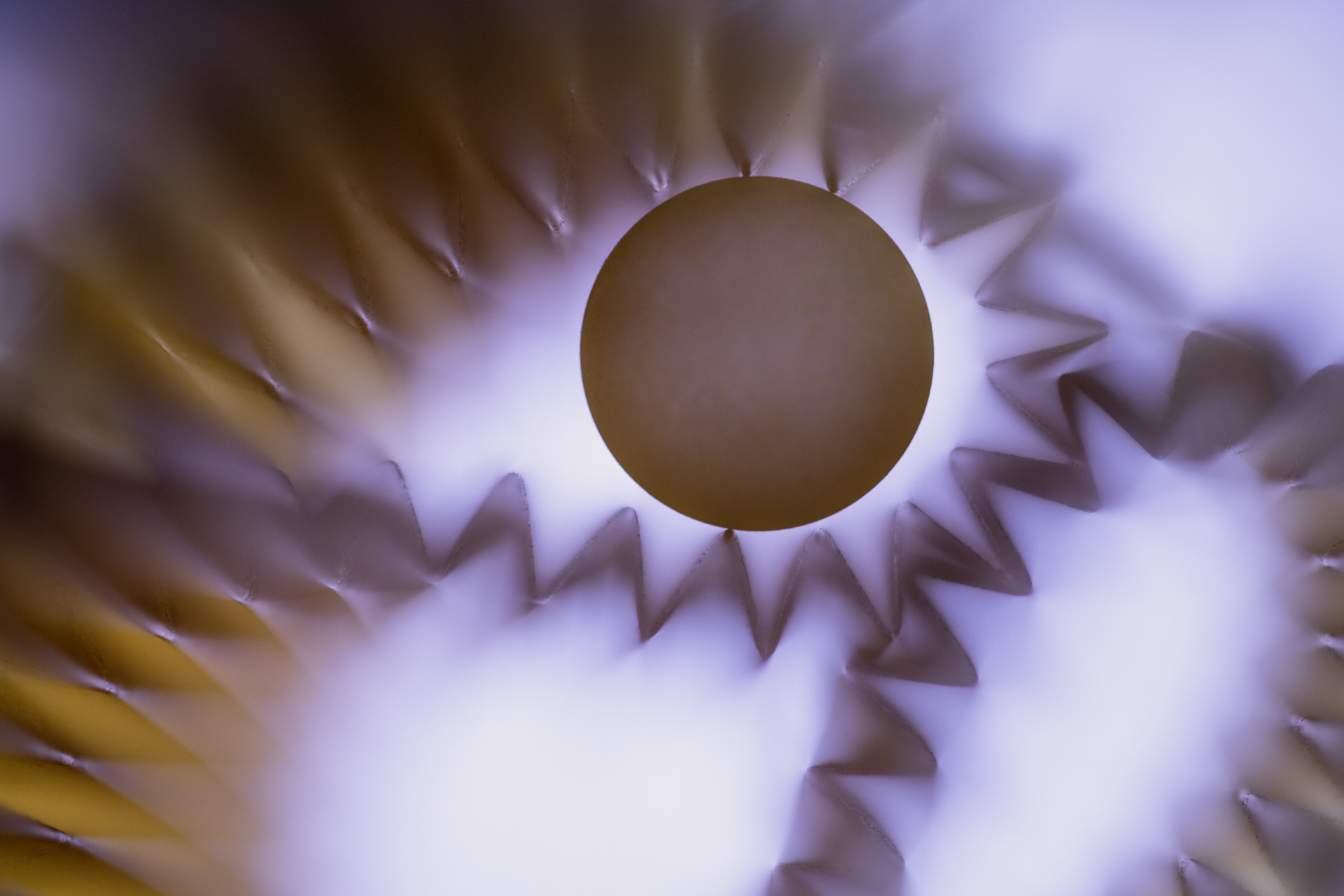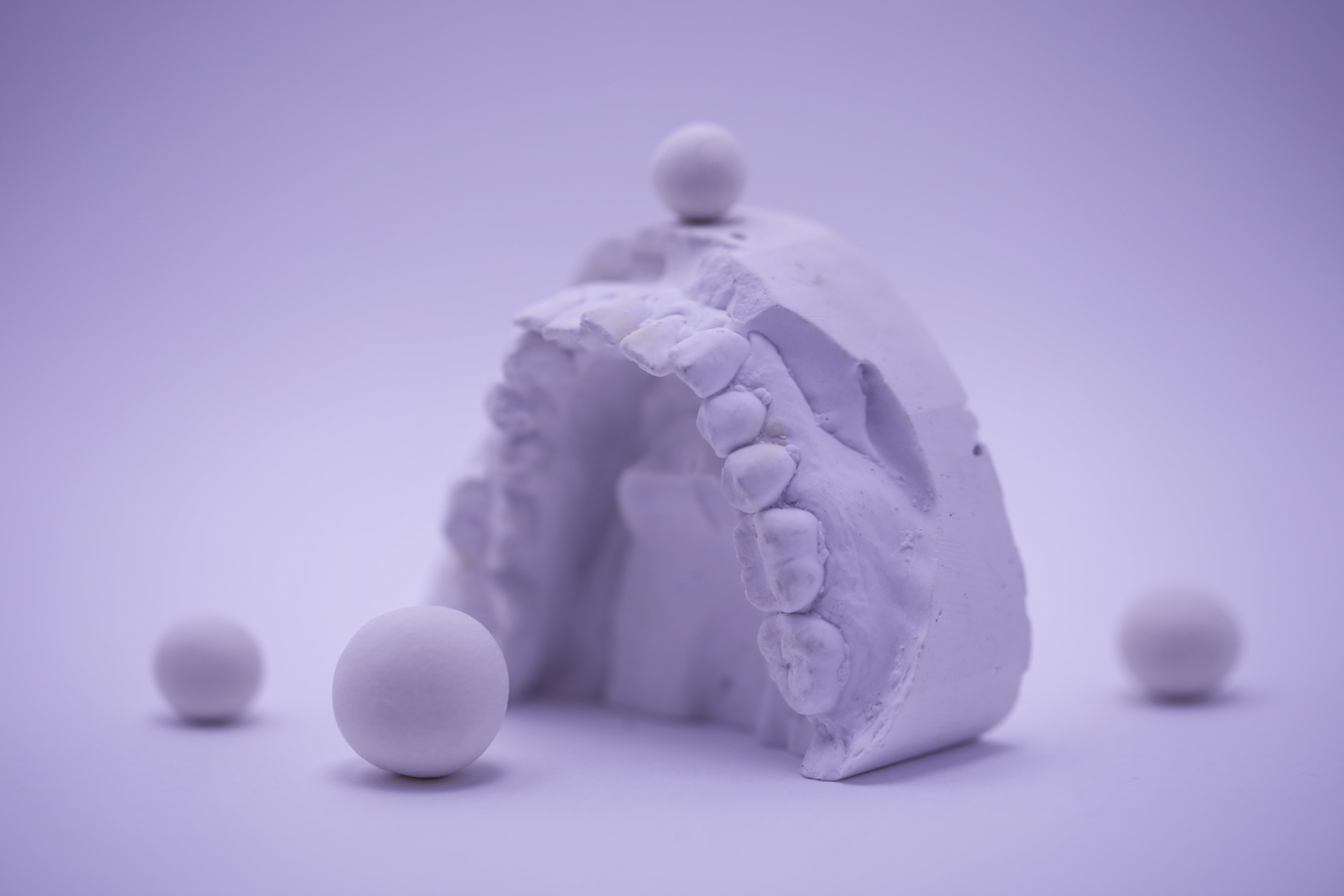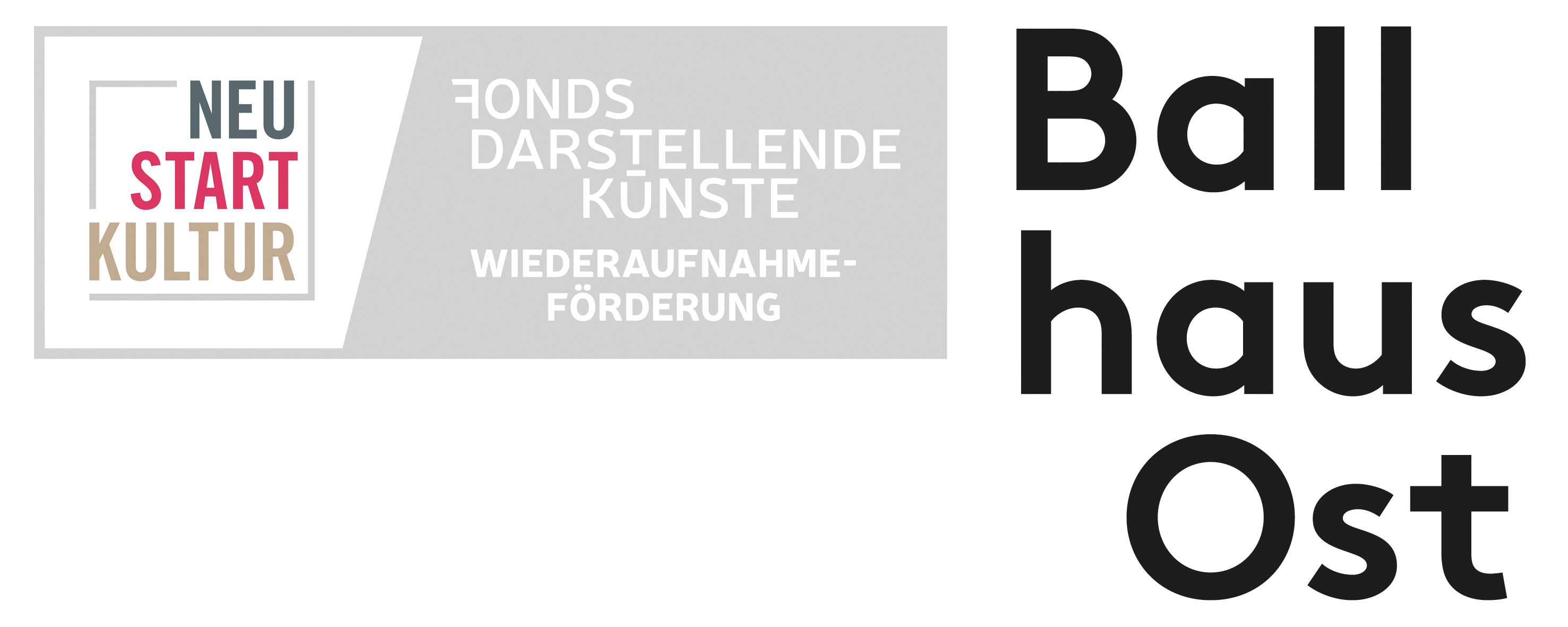Big Bangs & Black Holes
A Digital Double-Bill
Format: Film
Dates: 19 - 30 Jun 2023
Venue: Online at ballhausost.de
Language: English, with English subtitles
Duration: 60 min (Dogs of Love), 32 min (We Come With Nothing)
Films on demand: Available to view below
Dates: 19 - 30 Jun 2023
Venue: Online at ballhausost.de
Language: English, with English subtitles
Duration: 60 min (Dogs of Love), 32 min (We Come With Nothing)
Films on demand: Available to view below

Artistic direction, text, performance, edit: Chris Gylee & Aslan
Composition Dogs of Love: Elie Gregory
Composition We Come With Nothing: Mars Dietz
Light design, additional film: Elliott Cennetoglu
Photography, additional film: Óscar González
Response texts: Inky Lee, Parvathi Ramanathan
Additional sound support Dogs of Love: Aude Langlois
Production management: ehrliche arbeit — freies Kulturbüro
Supported by: the Fonds Darstellende Künste with funds from the Federal Government Commissioner for Culture and Media within the framework of NEUSTART KULTUR. Kindly supported by Mustarinda Residency.
Composition Dogs of Love: Elie Gregory
Composition We Come With Nothing: Mars Dietz
Light design, additional film: Elliott Cennetoglu
Photography, additional film: Óscar González
Response texts: Inky Lee, Parvathi Ramanathan
Additional sound support Dogs of Love: Aude Langlois
Production management: ehrliche arbeit — freies Kulturbüro
Supported by: the Fonds Darstellende Künste with funds from the Federal Government Commissioner for Culture and Media within the framework of NEUSTART KULTUR. Kindly supported by Mustarinda Residency.
Big Bangs & Black Holes is a digital double-bill by Queer performance collective ONCE WE WERE ISLANDS.
Dogs of Love (2019) and We Come With Nothing (2021), created initially as stage works, are shown side-by-side for the first time, reimagined for film and animated with poetic imagery.
Dogs of Love investigates the intimate connection between two people. Starting with a real-life love story, two lovers run in opposite directions through time and space, through pasts and futures populated with real and imagined stories of Queer togetherness. Footsteps echo as we dive deep into togetherness, loneliness, crisis, and intimacy. Can we ever really leave someone we have been in love with?
We Come With Nothing explores the dark side of entanglement. Inspired by the form of Olga Tokarczuk’s ‘constellation novels’ and ghost stories, it conjures a shadow-world of broken connections. What happens when a relationship ends in estrangement? What is this ‘nothing’ we are left with? What do we discover when we stare into this black hole?
The films are available to view, free of charge, as films-on-demand at www.ballhausost.de from 19 — 30. June 2023.
See below for specially commissioned response texts by Inky Lee and Parvathi Ramanathan.
Response Texts by Inky Lee and Parvathi Ramanathan
Inky Lee — Part 1
We Are Afraid, But ...
I remember seeing the live performance of Dogs of Love in 2019 at Ballhaus Ost. The trust and intimacy between the two performers, Aslan and Chris, was tangible. I remember them holding hands during the bows and Aslan kissing Chris’s cheek, while Chris looked dazed. My friend, who was sitting on my right, turned to me and said that they were jealous.
I remember once spitting out to a friend, “I just want to love someone and them to love me back!” They answered, “Ugh. That's what everyone is writing songs and making movies about.” We held each other and groaned.
I am a cynic when it comes to the idea of everlasting romantic love between two people. Or perhaps I am just refusing to give in to capitalistic society’s scheme of selling romantic love as the ultimate key to happiness and fulfillment, and thereby turning it into a social obsession. However, when I do witness a love that resembles this ideal, I marvel, as if seeing a miracle.
Dogs of Love portrays this kind of love. It travels through spaces of safety and loneliness. It is risky to love, to open oneself to an unknown that can break down the walls of security. Only by taking this risk, however, can one wriggle out of one’s cradle of loneliness.
when we love / we are afraid
Together with loved ones, one can find the courage to destroy old habits of (false) safety, to ‘scare ourselves’, and then find a reimagined security in and with one another. Miracles are created only through destruction.
We Come With Nothing looks at this destruction. Destruction is not entirely without hope; it is a gesture of reaching out towards dreams that may be shattered or which have existed only in one’s imagination. Destruction may not be the end of the story, however. Instead, it may be a step towards crossing over to the other side. Just like when Aslan and Chris climb hills aimlessly, searching for a moment of major shift in their lives. Or when a woman who experienced a collapse within herself arrives at a moment when she can take the initiative to cross over to the other side of that collapse, and become a part of a collective dream.
In both Dogs of Love and We Come With Nothing, there is hope, longing, persistence, and attempts towards building a queer utopia. This is a utopia dreamt up and created by Aslan and Chris for themselves, as well as a shared utopia of chosen families where we can be safe and happy with one another.
Part 2
Back to the Body
We Come With Nothing feels like a mind racing through a series of bad dreams, or memories that keep recurring unexpectedly, leaving an unpleasant aftertaste in the mouth.
The tempo is breathless. The colours are subdued and grey. This creates a sense of anxiety and a feeling of being trapped in a loop of unpleasant thought cycles. The details and characters in the intersecting stories start to lose their individual meanings, but the overall feeling of troubling dizziness rushes on like waves in a stormy ocean.
The contents of these feelings are not something extraordinary, but rather an accumulation of discomfiting states that most of us pass through repeatedly in our daily lives. In the film, they are vocalised as “A list of stuff to bury”: Self-doubt, sadness, loneliness, frustration, regret, rejection, pain, powerlessness, deception, shame, guilt, blame … Everyday objects and scenery, such as chairs, curtains, buildings, and the sky, are seen on the screen. Although they are “normal”, the experience and memories of them in our day-to-day lives are absorbed by our bodies, leaving less room for emptiness and serenity. Thoughts, memories, and feelings also take up space in our minds and bodies in this way. How can we be free from them? Can we? The film seems to be searching for an answer to these questions.
It is a relief when the pace of the film slows down to the tangled bodies of Aslan and Chris. The words that have been filling the soundscape stop. This scene is titled “Courage”. To be courageous is to take oneself out of one’s head, come back to the body, and take action. In Dogs of Love, “The Back to the Body Movement” is mentioned several times. We see Aslan and Chris, on two separate screens, running steadily through varying colours, seasons, and landscapes. Running is a metaphor for their love. It is a repetitive action that is not always easy. It continues only through active choice and will. Unexpected challenges and negotiations with oneself and the surroundings arise. At times, it is also a pleasant, liberating, meditative, and even addictive experience.
They choose to run, despite the risk of finding out that there is nothing or something terrible at the end. In We Come With Nothing, it is stated that: “‘Nothing’, used as a pronoun, is the absence of something that one might expect or desire to be present …”. In Dogs of Love, Aslan and Chris run towards and through the risk of feeling all the emotions demonstrated in We Come With Nothing: The perplexity of things gone astray in attempts of love. Although they sometimes express despair, uncertainty, and loneliness in not knowing if they will still find love in the end, they keep on running. This is their brave decision of loving one another.
At the end, all other thoughts fall away and only their love remains, as they repeat:
we kiss
we kiss
we kisswe kiss
Parvathi Ramanathan — Part 1
Is This the Time?
Imagine that moment when a five-year old is blowing out the candles on their birthday cake.
Was it you in your imagination? Was the cake your favourite flavour? Or was it just an image that was already there, retrieved from an advertisement for a greeting card company, perhaps — part of a montage of feel-good moments, celebrations, and sorrows?
Dogs of Love retrieves the imagination of such a montage by placing Queer bodies in significant moments in history and also in the future. The idea of what may be significant, too, is undone by zooming in on the lives of the two protagonists and then referring to world events through the way that they shape them. Or perhaps these are events that shape Queer lives in other places and other times.
2033: MHV Vaccine Trials Begin.
1985: Kate Bush Releases ‘Hounds of Love’.
Hopping, traipsing, and eventually leaping across time, the protagonists weave themselves in and out of past and future centuries. Their fantasies allow kingdoms with Queer monarchs to rise and then fall again, and for humans to grapple with the resurgence of nature — themes driven by their political and environmental concerns. In these reincarnated lives, the sensations of the body remain intimately at the centre as the protagonists are placed in different locations and constellations. Throughout it all, they are connected to one another, tenderly but firmly, as lovers.
Love. That is the point of it all.
If Dogs of Love is a joint declaration of that statement, then We Come With Nothing is a dialogue that tries to comprehend the wrecked remnants of endings. Here, the erratic sticky-smooth flow of time becomes evident through lapses in memory and differing perspectives on what occurred, or what could have occurred. There is no reincarnation here but rather a sensation of being stuck in the body. In this entanglement, one keeps peeling away from and digging away at the sense of self. In examining endings and absences, something becomes present.
“‘Nothing’, used as a pronoun, is the absence of something that one might expect or desire to be present ...”
“We found nothing”, “Nothing was there,”
Is the end really the final end, without a dialogue? If there is a dialogue, is it the end?
Once We Were Islands’ inspiration for this work from Olga Tokarczuk’s constellation novels is evident through the constellation of the slabs of time the audience crashes into. And just as Tokarczuk’s interwoven stories allow readers to “project order onto the sky” (interview with Louisiana Channel, Louisiana Museum of Modern Art, 2017), so the rooms we catch a glimpse of in We Come with Nothing have an architecture of the audience’s making.
Together in Dogs of Love and We Come With Nothing, we grasp at lifelines of love that are at once forming and fading.
Part 2
Sitting at my desk in Berlin, I watch the films that together make up Big Bangs and Black Holes. I notice it suddenly and then am unable to un-see it after that – my face is reflected on the bare wall of a roving room in the performance film We Come With Nothing. Later, a pile of rocks under my nose. My forehead, stamped with the words “Evil is the opposite of good, a quality of God”. Now, I cannot un-read it. The tandem between the video-graphic images and the phrases culled from literary works, allow for a sensually slow entanglement layered with meaning.
The deserted rooms become conspicuous by their absences. Among the unused clothes-hangers jutting at odd angles, I see the hands that left them there in a hurry. I see the empty chairs set against the wall, dented by the weight they once carried. Is this the same room that once resonated with the hubbub of conversations in many foreign languages? Is this the moment when love was put in the deep freeze?
But it is not the audience who are the magpies placing fragments into a constellation, but rather the makers Chris Gylee and Aslan. As a viewer, I am just a weaver bird. A pulsing sound composition (by Mars Dietz) urges time forward, but I am still left in the hallway that the camera went out through. The ordering of themes for each montage also leaves voids that inspire me to distrust or disagree with the narrators’ voices. I wonder, is it perhaps the absence of human bodies that lead me to this wandering? For when ‘Courage’ brings us to two bodies in foetal position, resting and cuddling together, their tugging fingers pull me back to their narrative.
From the floating sensation of We Come With Nothing, I land firmly onto the paths of the two runners in Dogs of Love. The perspective of the camera in the performance film snatches away the distance that a live performance setting may provide. We see the two lovers running ahead of us on parallel-sectioned screens. Like characters in a roleplaying game, we follow them bounding over their own wooded paths – one into the past and the other into the future. Through the next hour, I find that my breathing is bound to their cadence. The questions they ask of each other as fascinated lovers tie me as a viewer to the cavities in their bodies.
Can you feel the air inside your mouth when you open it and smile? How heavy is your heart? What colour is the fluid running up and down in your spinal column?
They run unrelentingly through glitches and flickers, through snow and sun, in diverse hues of colour. When past and future are placed on these winding paths of a forlorn northern pine forest, the tales of their reincarnated lives ring as an ominous survival quest. I wish then, to seize controls of this roleplaying video game and swerve them away, or back, or onto the other’s path. Peering into the woods that escape from me on either side of the screen, I wonder, is this the time to talk about love? Bounding along on two running paths at once, I wonder, will I see you around the next turn?


The above images include photography by Óscar González.
Big Bangs & Black Holes is a ONCE WE WERE ISLANDS production in cooperation with Ballhaus Ost. Kindly supported by Mustarinda Residency.
Additional thanks to: the team at Ballhaus Ost; Katelyn Stiles; the team at Theater neben dem Turm, Marburg; Jukka Orenius; the residents of Okun Konttori Oy, Outokumpu; the team and fellow residents at Mustarina residency; Kysy Fischer; Óscar González.
Big Bangs & Black Holes is a ONCE WE WERE ISLANDS production in cooperation with Ballhaus Ost. Kindly supported by Mustarinda Residency.
Additional thanks to: the team at Ballhaus Ost; Katelyn Stiles; the team at Theater neben dem Turm, Marburg; Jukka Orenius; the residents of Okun Konttori Oy, Outokumpu; the team and fellow residents at Mustarina residency; Kysy Fischer; Óscar González.